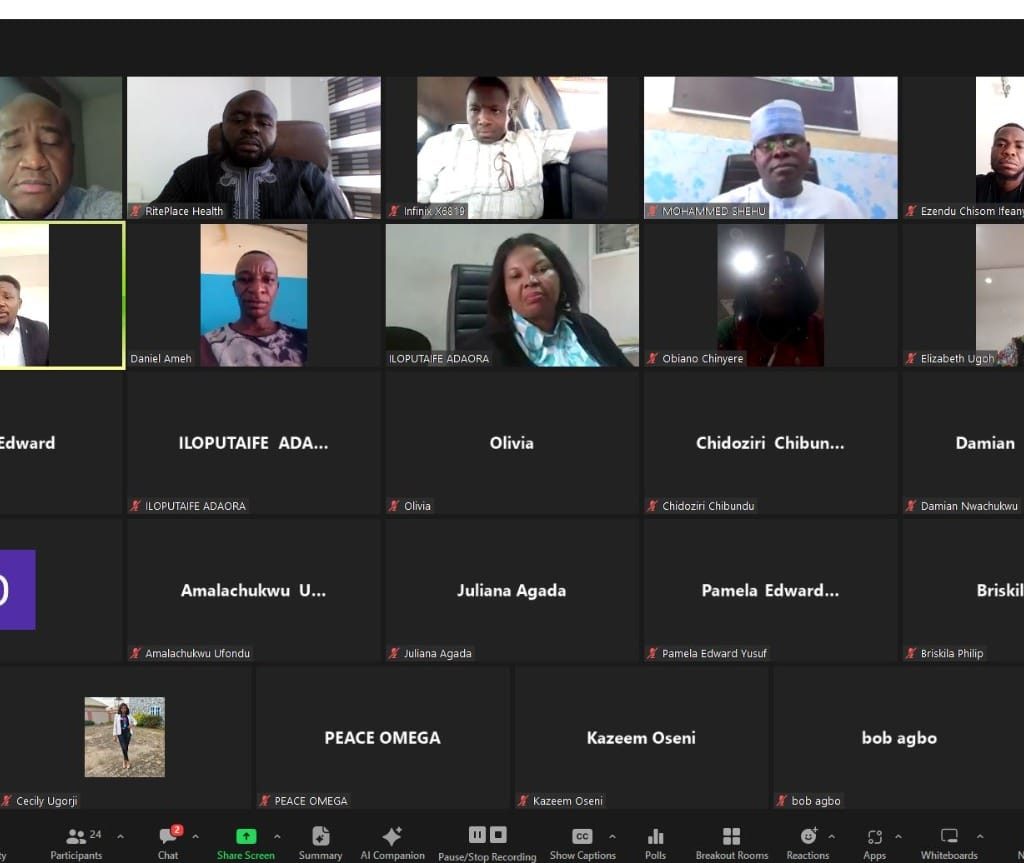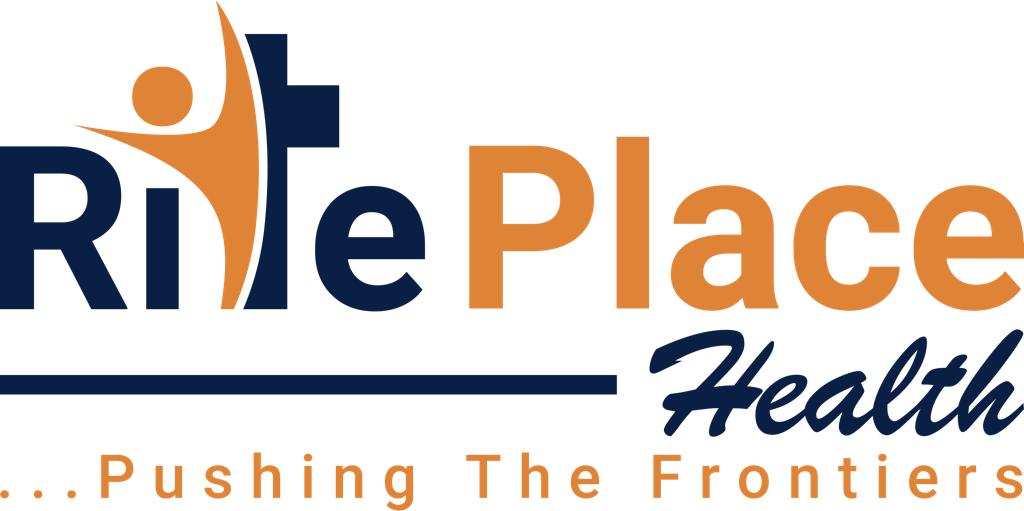PROGRAM: RITE PLACE WATER DIALOGUE SERIES 1
THEME: We are what we drink: emerging advancd technologies for effective
water treatment in the vanguard of alleviating water borne diseases
SUBTHEME: driving innovative technologies and solutions for water
treatment in Africa
HOST: Rite Place Health Initiative
VENUE: Zoom and facebook live
DATE: 14 th December 2023

1. MRS ELIZABETH UGOH: EFFECTIVE PUBLIC PRIVATE PARTNERSHIP FOR THE
SUPPLY OF SAFE, CLEAN AND HYGIENIC WATER.
Water is life but it can also be dangerous when the quality is bad
It doesn’t matter how long we have been consuming bad water, we can’t still deny
the fact that consuming bad water is dangerous to the health
Analysis carried out for the “mairuwa’s” water is contaminated
When we talk about the SDG6, it talks about ensuring the availability of safe and
quality water and sanitation for all. The analysis says that by 2030, we are supposed
to achieve universal equitable access to safe and affordable drinking water for all
and also to improve water quality by reducing pollution, eliminating dumping and
minimizing release of hazardous chemicals
Talked about water providers which include commercial providers occupation and
private vendors like the tankers, mairuwas ec of which the source and quality is
questionable.
As a ministry, we intervene in the supply of water through the various water
agencies.
Talked about the quality of water which involves the chemical, physical and
biological characteristics based on the standard of water they use e.g. for fishing,
irrigation, tourism (swimming) has their unique standards.
Highlighted that it a responsibility of government to supply safe and available water
to the populace
At the sources of water from statistics; 68% supplied at the source is contaminated
while 32% is free from contamination likewise at the part of consumption 70% is
contaminated while 30% is contaminated.
Challenges we have with provision of water is lack of partnership, infrastructure,
inadequate skilled capacity
We need participation from both private organizations to support the government
in order to achieve the SDGs goal of supplying safe water and sanitation for all by
2030.
Ministry’s intervention; declare state of emergency, construction of water supply
facilities and training establishments of water quality monitoring laboratories,
launch of national roadmap for water quality management, institution of
WASHNORM annual survey, establishment of coordinating group of collaboration
with stakeholders
Ways of improving safe water; improved investment in infrastructural development,
create enabling environment for private sector participation, implement water
safety plans, ensure high level political by-in, strengthen regulatory framework for
safe water supply and strengthening capacity for public and private service
providers
To ensure effective public private partnership(PPP) for safe water supply consider
the following strategies; creating enabling environment for PPPs, apply
comprehensive water safety plans, develop health based guidelines and regulations
for water safety
In conclusion, collaboration by relevant stakeholders and clear roles are essential
for successful PPPs in safe water supply management. By this, we contribute to
achieving the SDG 6.1 goal which aims for universal access to safe and affordable
water for the wellbeing of the populace
WATCH HERE
2. MRS LUPATAIFE A.V: GUIDELINES FOR EFFECTIVE WATER TREATMENT IN
NIGERIA
The NAFDAC mandate established by decree no 15 of 1993 as amended by decree
no 19 of 1999 and the NAFDAC Act N1 laws of the federation of Nigeria (IFN) 2004
to regulate and control the manufacture, importation, exportation, distribution,
advertisement and use of food, drug, cosmetics, medical devices, packaged water,
chemicals and detergent collectively known as regulated products.
The mission of NAFDAC is to protect and promote public health by instituting
effective and efficient regulatory system that ensures only the right quality food,
drugs and other regulated products are manufactured, exported, imported,
advertised, distributed, sold and used.
According to the United Nations, 2.2Billion people lack safely managed drinking
water
Diarrhea leads to the death of more than 70,000 children under five annually
One of the 17 sustainable development goals (SDG) is aimed at addressing the
challenges of quality water by ensuring availability and sustainable management of
water and sanitation for all
WHO defines drinking water as water that is safe for human consumption without
risk of adverse health effects
Nigerian industrial standard (NIS) focuses on establishing criteria for quality, safety
and purity of water. It also outlines parameters such as microbiological, physical
and chemical characteristics that water must meet to be considered safe.
Factors to consider for water Treatment
Water quality: analysis of raw water
Water source: public mains, rivers, streams, borehole etc.
Water usage: drinking, industrial, agricultural, recreation etc.
Regulatory standard: NIS and NAFDAC guidelines
NAFDAC Guidelines (good manufacturing practice & requirements) for water
treatment
Organization & personnel: hygiene and quality
Building: Location and building design
Equipment: Nature, design and installation
Treatment processes: NAFDAC guidelines
Major Treatment Processes for water production facilities to adopt which include;
Disinfection (chlorination, ozonation, chlorine oxide treatment)
Filtration
Sterilization
If water treatment is not effective, it will impact on public health leading to water
borne disease
To ensure that water is safe and effectively treated, food handlers must follow the
rules of good hygiene and food safety
Inconclussion, in order to boost the country’s economy and reduce the menace of
water borne diseases, both the government, the industries, the regulators and the
general public must play their respective roles to ensure reduction and elimination
of unclean water
WATCH HERE
3. CHUKWUMEZIE OKOLO: INNOVATIVE TECHNOLOGIES AND SOLUTION FOR WATER
TREATMENT
Water is the elixir and element of life
Without adequate water, one suffers dehydration and eventual death
When one considers the costly effect of waterborne diseases, it highlights the need
for success to safe, clean and hygienic water
Water occupies over 75% of our body
Access to clean, safe and hygienic water is a fundamental right
The decreasing availability of quality water is an important problem afflicting all
continents
80% of diseases in Africa are water-related
More than 50% of Nigerians do not have access to quality water
Water borne diseases remain a significant public health concern worldwide
Fluorine, chlorine, bromine, and other chemicals in water are dangerous to human
health
Consumption of packaged water is as a result of declining consumer confidence in
the safety and quality of municipal water supplies
Emerging advanced technologies in water play a crucial role in providing safe
drinking water and alleviating water borne diseases
Rite Place Health initiative has adopted a clear vision premised on reducing water
related diseases via the provision of a facility which uses nanotechnology
Nanotechnology, the engineering and art of manipulating matter at the Nano scale
(1-100nm) offers the potential of novel Nano materials for the treatment o water.
The nanotechnology uses filters made of Nano tubes and can remove viruses,
bacteria, and suspended solids. It has great efficiency compared to micro filters and
ultra-filters. It also has low energy usage
Ozone is a naturally occurring gas in earth’s atmosphere and one of nature’s most
powerful oxidizers
Ozone water treatment is a water treatment method that reduces contaminants
through ozone’s oxidation strength. It oxidizes iron, manganese and copper into
solid particles that can be easily filtered from water
Through oxidation, ozone water treatment systems can even get rid of water
turbidity, bad taste and water odour
Finix is developed to purify and filter water, making it safer and more hygienic for
consumption. This system utilizes quantum disinfection and nanotechnology
Quantum disinfection is a revolutionary patented technology that uses many of the
same quantum mechanical principles of electron movement found in smartphones.
Heavy metals, bacteria and viruses are eliminated within seconds leading to safe
water and good tasting
Finix is patented in the USA and approved by the FDA
For large volumes of water, the system integrates the use of ozone water treatment
via the installation of ozone generators
The ozone generator is a unique design that produces ozone to kill 99.99% of
bacteria and viruses. It also oxidizes heavy metals
The three (3) options of the system include;
Kitchen Mini system (option 3): the kitchen mini option is suitable for single
housing units and it is installed within the housing unit preferably the
kitchen
The second option is handles a much larger volume of water suitable for a
cluster of housing units or buildings e.g. apartment, schools hospitals etc.
Option 1 handles a much larger volume of water in relation to option 2. It is
suitable for a larger cluster of housing units as well as commercial business.
It also integrates the use of an ozone generator
Why we chose to partner with Finix
Nanotechnology is better than reverse osmosis
The technology is patented in the USA, FDA approved and EPA certifies
The nodes are made in Nigeria
The use of ozone water treatment
It is manufactured in US and meets quality assurance requirements
It is affordable and sustainable
Inconclussion, Rite Place has forged a technical partnership with Finix anchored on
deploying diverse options of agile water treatment system in Nigeria and Africa at
large
Rite place is ready and open to partnering with Government, ministry and agencies
as well as reputable organizations
Together we can join hands to fight waterborne diseases
WATCH HERE
4. MUHAMMAD SHEHU: SUSTAINABLE WATER TREATMENT SOLUTIONS
Safe hygiene can’t be achieved without safe drinking water
70%of earth surface is covered by water and only 0.5% is safe for consumption
The challenges of clean and safe water can be pinned to increase in population,
urbanization, industrialization and change in climate
There is need to meet global demand for safe drinking water. And in order to meet
this need, we talk of water treatment
Water purification depends on the characteristics of the quality of raw water (either
surface or underground water)
FCT water board has tried over the years to maintain standard water supply
The challenge for safe drinking water demands a need for modern technologies to
be used to achieve the SDG 6 goal
Techniques used over the years in filtration and purification of water include;
reverse osmosis, activated carbon emission, charcoal water filtration, ultraviolent
filtration, bio sand filtration and ceramic water filtration. All the techniques are
capital intensive
There is need to research for an indigenous way that FCT as a body and as
individuals to achieve portable water
Whatever technology we opt for, we have to ensure that the following features are
available;
Environmental friendly
Reduces water wastage
Uses less electricity
Easy to handle
Ensure that maintenance parts are available
Water board has a slogan which is “Price and quality can be negotiated, however,
safety and quality are not negotiable”.
WATCH HERE
